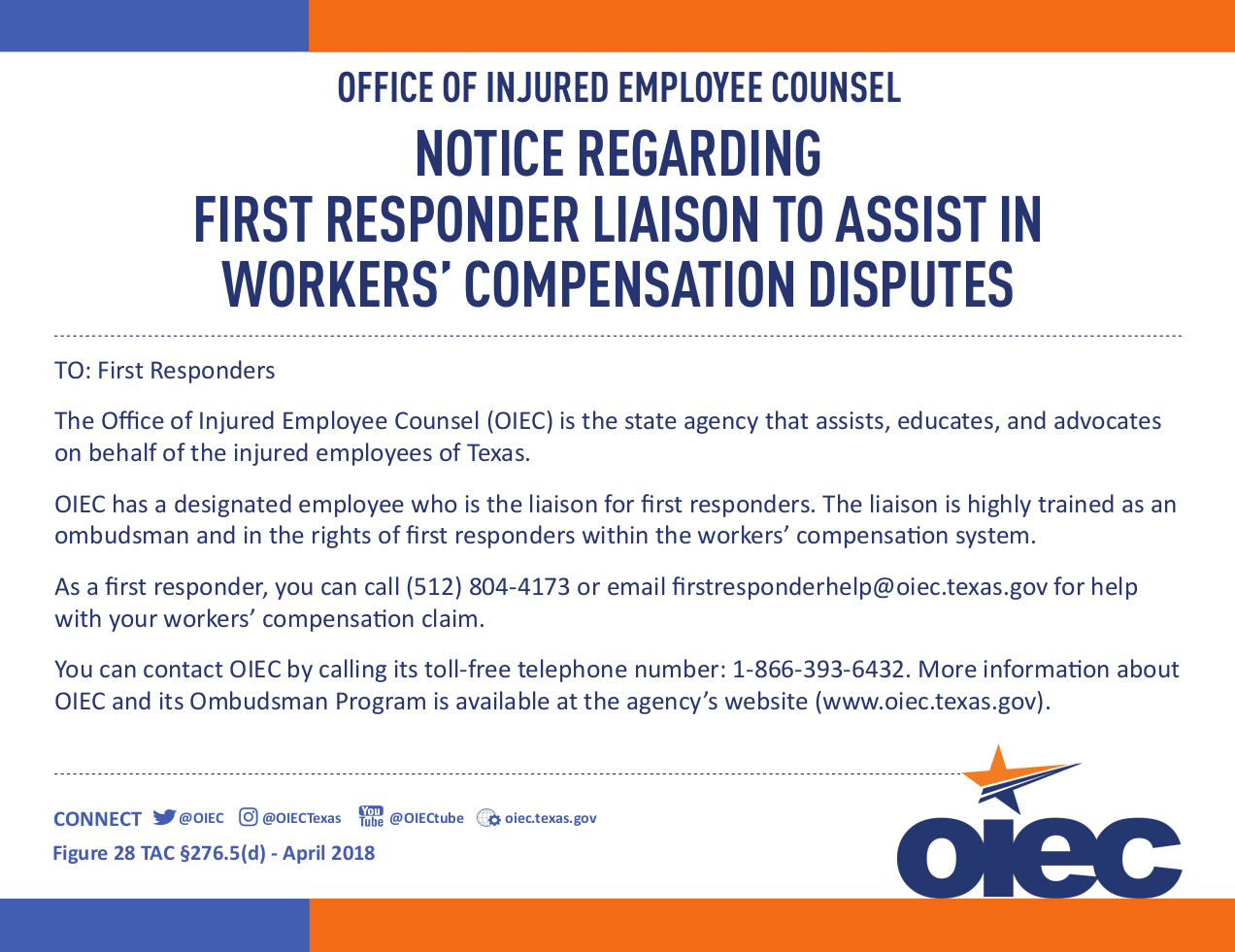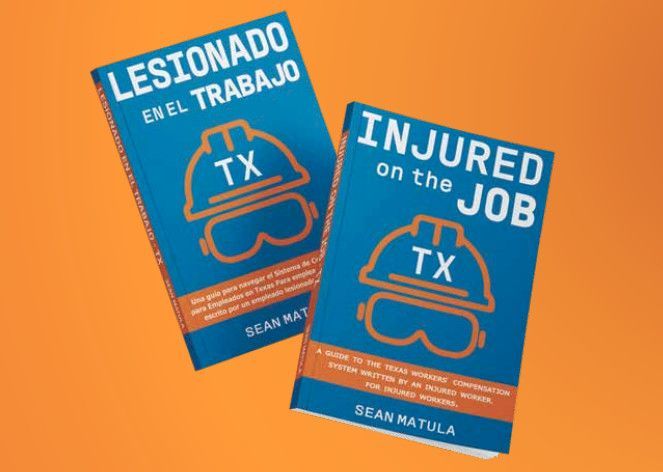Injured First Responders (Fire, EMS, Police) in Texas Workers Compesnation
Injured Texas First Responders (police, fire, EMS) you may have additional options for care and benefits under workers' compensation.
First Responders in Texas
As a first responder who was injured on the job in Texas and who wrote the book for injured workers in Texas, my hope is to provide all public servants with the best information to handle their claim.
Contents:
- Who is a first responder in Texas?
- Direct assistance for injured first responders
- Notice to employees’
- Presumption of injury
- Accelerated care and benefits
- Right to sue
- Conclusion
Who is a first responder in Texas?
Under Texas Law a first responder is defined as:
An individual employed by a political subdivision of this state who is:
(A)a peace officer under Article 2.12 (Who Are Peace Officers), Code of Criminal Procedure;
(B)a person licensed under Chapter 773 (Emergency Medical Services), Health and Safety Code, as an emergency care attendant, emergency medical technician, emergency medical technician-intermediate, emergency medical technician-paramedic, or licensed paramedic; or
(C)a firefighter subject to certification by the Texas Commission on Fire Protection under Chapter 419 (Texas Commission on Fire Protection), Government Code, whose principal duties are firefighting and aircraft crash and rescue; or
(2)an individual covered under Section 504.012 (Optional Coverages)(a) who is providing volunteer services to a political subdivision of this state as:
(A)a volunteer firefighter, without regard to whether the volunteer firefighter is certified under Subchapter D, Chapter 419 (Texas Commission on Fire Protection), Government Code; or
(B)an emergency medical services volunteer, as defined by Section 773.003 (Definitions), Health and Safety Code.
The definition applies to any paid or volunteer, private or municipal firefighter, emergency medical services technician or peace officer in the state of Texas who’s employer provides coverage under the Texas workers’ compensation insurance network.
Direct assistance for injured first responders
In Texas, the Texas Department of Insurance (TDI) provides assistance to injured employees through the Office on Injured Employee Council (OIEC). As a first responder the state also provides direct assistance through a dedicated first responder liaison. This is an ombudsman (specially trained insurance adjusted) who has additional training and specialized knowledge of the laws affecting first responders in Texas.
If you are injured as a first responder you may submit claims directly to the first responder liaison:
First Responder Liaison - OIEC
email: firstresponderhelp@oiec.texas.gov
phone: (512) 804-4173
Posted notice in workplace (notice to employees) Agency
By law if your are employed as a first responder in Texas your employer must post the following information in the workplace. This may be a written notice or poster.

The first responder liaison notice shall be:
- posted in the personnel office and in the workplace where employees or volunteers are likely to read the notice on a regular basis,
- printed with a title in at least 15 point bold type and text in at least 14 point normal type,
- be in English and Spanish or in English and any other language common to the employer's affected employee population.
If not, ask your employer if they are aware of the requirement. If they fail to comply and provide proper notice, file a complaint with OIEC.
Presumption of injury
Another benefit under Texas law to injured first responders that does not apply to other workers’ compensation cases is the presumption of injury.
The impact of this is that the insurance carrier under your claim must presume your injury is work related unless THEY prove otherwise. For occupational illness and cancers you must have had an medical exam at the time of employment and have been employed for at least five years (exceptions apply, always ask). This includes but is not limited to the following:
- cancer
- immunization related death or disability
- tuberculosis or other respiratory illness
- stroke or acute myocardial infarction
- hearing loss
- asbestosis
- biological exposure
This presumption or injury coverage applies when traveling to any from emergencies. In cases of occupational illness, the coverage may extend to after work. Such as a heart attack after a stressful shift.
If you are killed while serving as a first responder your beneficiaries are entitled to accelerated benefits.
Read more on care and benefit amounts under workers' compensation.
Accelerated care and benefits
Other benefits provided under law include accelerated injury and case review, scheduling of appeals, reviews and reimbursement of expenses.
Right to sue
Unlike other injured employees, as a first responder in Texas who may have the option to file civil lawsuit against your employer and receive damages if it is found that your experienced discrimination as part of your claim. This may include retaliation for filing a claim or firing you. This applies to any government entity or private employer.
Conclusion
Use these additional statutes afford to you as an injured first responder in Texas to receive all the care and benefits you deserve. My hope is that you are able to quickly navigate the process with your insurance carrier and that your claim is not denied. If you need help contact the OIEC, first responder liaison.
For more information on current 2023 Texas legislation that may affect first responders be sure to read this article.
The author, Sean Matula was injured on scene of an emergency while responding as a firefighter. His claim was denied and his case mishandled by TDI. After years of fighting he had he case overturned. In order to help other injured workers in Texas navigate the workers’ compensation system he wrote the guidebook; Injured on the job – Texas. If you have been injured at work, do not go it alone, pick-up a copy today to ensure you receive all the care and benefits under Texas law.





